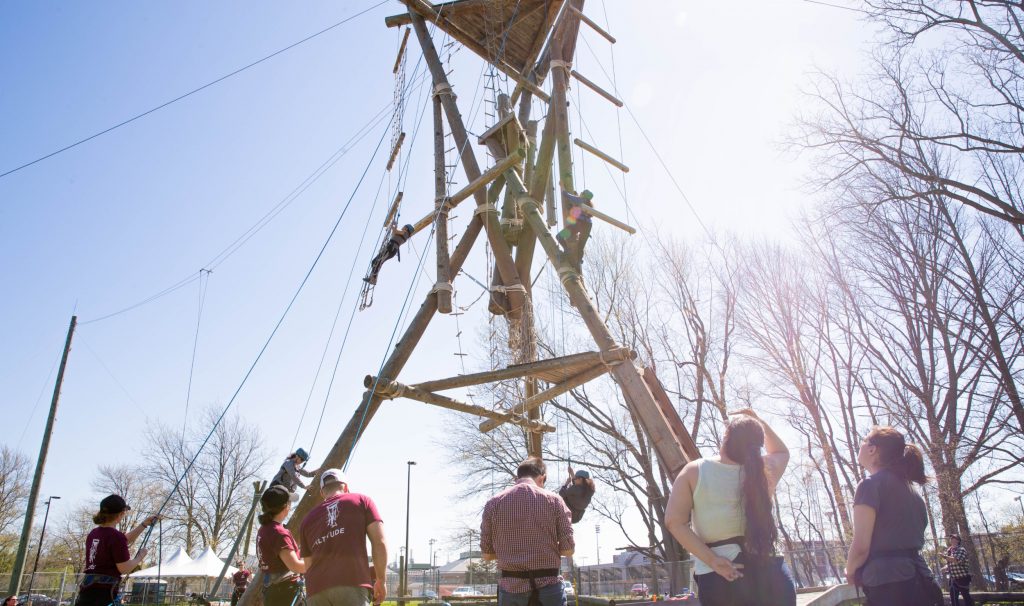Indigenous scholars get a feel for the graduate experience

Indigenous undergraduate summer research scholars (IUSRS) program students climb McMaster's ALTITUDE tower on the first day of their 8-week immersion into graduate student life.
When the Indigenous Undergraduate Summer Research Scholars arrived at McMaster to learn the ropes of graduate school, they didn’t expect to be using real ropes. But that’s how the program started, with a team climbing session on Day 1 at McMaster’s ALTITUDE tower.
After this, it gets a bit more academic, as the students get a taste of graduate studies and work on their research and writing skills, but building relationships is as much a focus of the eight-week IUSRS program as the research work.
The students will participate in cultural activities on campus and at Six Nations of the Grand River Territory, with cultural and academic programming interwoven into their work and several workshops and events.
This year’s 11 students come from schools in Ontario, Quebec and B.C. Each is paired up with a graduate supervisor who will put them to work on research, help them connect with local communities and mentor them with an eye on getting the most out of their campus experience.
The IUSRS program is run collaboratively by the School of Graduate Studies and the McMaster Indigenous Research Institute. It started as a pilot program in 2015 and is so successful that other Canadian universities are creating similar programs.
“I’m very happy to report that we are being copied,” says Doug Welch, Dean of Graduate Studies, noting that the University of Manitoba and the University of Regina have both started summer institutes that aim at encouraging Indigenous students to pursue graduate studies.
“You have a unique opportunity to learn,” Welch told the students on their first day, “but people at Mac are going to learn from you, too.”
The program emphasizes that idea of two-way learning, as well as creating a strong sense of community.
“Make your experience a good one, and forge a lot of friendships,” advised Rick Monture, acting director of the McMaster Institute for Indigenous Research, and one of this year’s supervisors.
“When you’re done school, what pulls you back in is the community you’ve built.”


